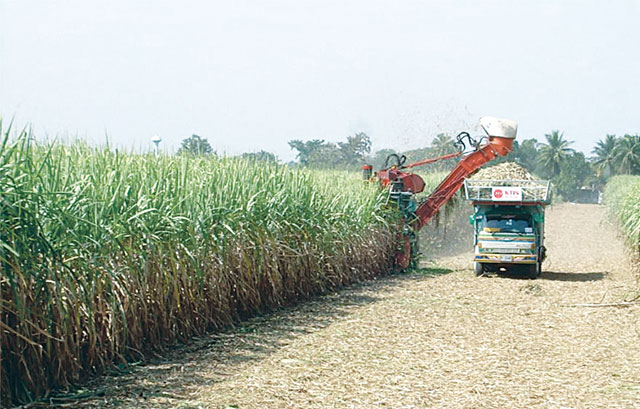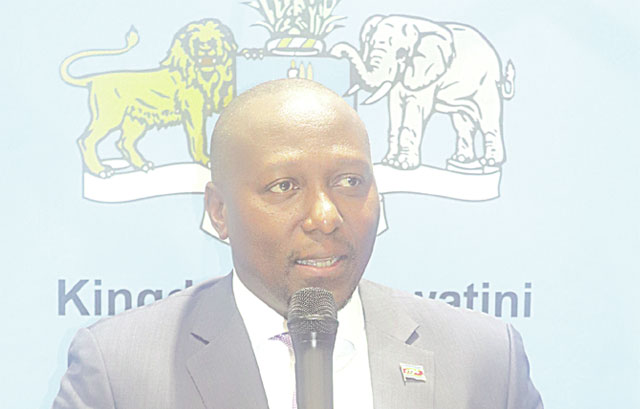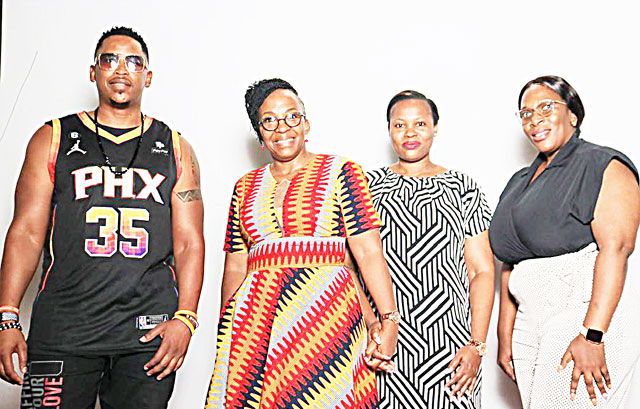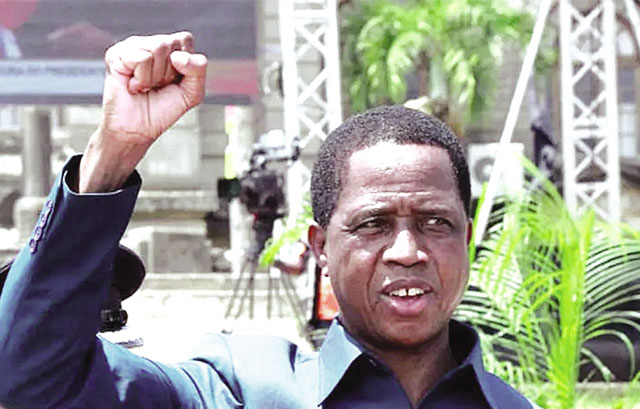By Samkelo Mahlalela | 2019-10-17

“We have today secured pledges for US$14.02 billion. So, we are absolutely thrilled by this,” said Global Fund Executive Director Peter Sands, at the end of the Global Fund Replenishment Conference held in the city of Lyon, France last week.
This is by far, the largest amount ever raised for a multilateral health organisation, and the largest amount by the Global Fund.
International donors, from wealthy nations to the private sector, and many not so rich countries (some of which are direct beneficiaries of the Global Fund) joined forces and graciously pledged US$14 billion for the next three years, to fight AIDS, Malaria and Tuberculosis.
The total amount pledged initially fell short of the $14 billion mark, which prompted French President Emmanuel Macron to make an emotional appeal to the world leaders and leading donors, to deliver to the next generation, a better and healthier world, fight inequality and strengthen social justice. Macron called on all partners to increase their commitments by at least 15 per cent in order to reach the target.
In the subsequent pledging session, the call to step up the fight by raising the targeted monies was heeded.
Macron himself increased France’s initial pledge by 20 per cent to make a total commitment of US$1.4 billion. Philanthropist Bill Gates pledged an additional US$60 million (matching France’s increase) to top up the Bill & Melinda Gates Foundation to a total pledge of US$760 million.
(RED), an innovative organisation co-founded by Bono of U2, which brings together companies around the world behind a single goal to end the AIDS epidemic, committed to raise US$150 million – reflecting a 50 per cent increase on the pledge made in 2016.
An outline of the pledges
At the end of the pledging sessions, the United States led the way with a pledge of $4.68 billion (33 per cent). Other major donors that stepped their commitment include the United Kingdom which pledged £1.4 billion (16 per cent increase); Germany pledged £1 billion pounds (17.6 per cent increase); Canada pledged CAD930 million (16 per cent increase); and Japan US$840 million. The European Union pledged £550 million (16 per cent increase), with other longstanding donors also contributing.
Private donors pledged more than US$1 billion for the first time ever, the extraordinary feat led by the Bill and Melinda Gates Foundation and RED pledges, alongside longstanding Global Fund supporters such as Dato Sri Dr. Tahir, Comic Relief and Takeda. Six new private donors also joined, including Children’s Investment Fund Foundation and the Rockefeller Foundation, and 11 partners committed other resources to expand innovation and impact.
In addition to some first-time donors, an unprecedented 23 implementing countries from Africa, including the Kingdom of Eswatini, Namibia, South Africa, Zambia, and Zimbabwe, also stepped up and committed, thereby playing a significant role in reaching the monumental milestone in the Global Fund’s replenishment history.
Fulfilling the promise
Early this year, the Global Fund called on the world to step up the fight against HIV, TB and Malaria, noting that ending the three epidemics by 2030 is within reach - though not yet fully in our grasp.
With only 11 years left to the target, going into the sixth Replenishment Conference, there was emphasis on that there is no time to waste and the need to step up the fight. As the head of states, donors and private companies gathered in Lyon, the common understanding was that stepping up the fight should not be perceived as a choice, but as the fulfilment of a promise. This worked wonders as seen from the amazing commitment from the multilaterals, bilateral partners, the private sector and the world.
Raising the targeted US$14 billion gives assurance that the Global Fund will be able to meet its needs in the fight against AIDS, Malaria and TB. It is projected that the availability of the Fund will:
n Save 16 million lives between 2021 and 2023, reducing the mortality rate by 52 per cent across the three diseases by 2023, relative to 2017 levels;
n Reduce the death toll across the three diseases to 1.3 million in 2023, down from 2.5 million in 2017, and from 4.1 million in 2005; and
n Avert 234 million infections or cases, reducing the incidence rate by 42 per cent across the three diseases by 2023, relative to 2017 levels.
An adequately fund GF also presents an opportunity to take a massive step toward achieving Sustainable Development Goal 3(health and well-being for all) and achieving Universal Health Coverage. The Fund will present an opportunity to:
n Strengthen health care systems – through directly investing approximately US$4 billion to build capacities such as diagnostic tools, surveillance systems, supply chain management and training for health care workers, and accelerating the shift toward patient-centred, differentiated models of care;
n Reinforce health security – by helping build more resilient health systems, with stronger surveillance, diagnostic and emergency response capabilities, and by directly tackling key threats to global health security, such as multidrug-resistant TB;
n Yield a return on investment of 1:19 – with every dollar invested resulting in US$19 in health gains and economic returns, further contributing to the achievement of the overall SDG agenda;
n Spur domestic investment of US$46 billion – toward ending the 3 diseases and strengthening health systems through co-financing requirements, and technical assistance on health financing;
n Tackle inequities in health – including gender (and human rights) related barriers to access, by working with partners, including civil society and affected communities, to build more inclusive health systems that leave no one behind.
n The unprecedented show of global solidarity in meeting the total US$14 required by the Global Fund for the three – year cycle beginning in 2020, will contribute to achieving these results alongside sustained levels of other external funding scaled-up domestic financing, and more innovation, collaboration and rigorous execution.
The Kingdom of Eswatini donation
The Kingdom of Eswatini has since 2003, received approximately US$269 million (E3.5 billion) from the Global Fund, for activities outlined in the country strategies.
The combined funds availed by the Global Fund and others from the country’s partners including PEPFAR, European Union, and the United Nations, the country has reduced annual new HIV infections from a high three per cent in the early 2000s to 1.4 per cent by 2017. This was achieved through enrolling 172 904 people living with HIV on treatment and care services.
Further, there has been an improved control of TB, resulting in the reduction of people treated for the illness in 2018. In addition, there has been a noted drastic reduction in Malaria mortality to levels acceptable for the country to move into total Malaria elimination.
The Global Fund and other partners monies have also changed the lives of many children in the country.
The early years saw the country hit 130 000 orphaned and vulnerable children (OVC), with the figure expected to double by 2010. The success of the treatment programme has resulted in declined AIDS-related deaths, with 2400 reported in 2018. But even with people living longer, 60 per cent of all children in Eswatini are classified as vulnerable - 71 per cent OVCs.
Many of these, survive because of the support provided by organizations like the Global Fund, with the World Food Programme (WFP) currently providing social safety nets for 55 000 OVC of pre-primary school age across the country at 1 700 Neighbourhood Care Points (NCPs) through access to food and basic services.
The country has also greatly benefitted from increased capacity systems for health, which had been collapsed by the heavy AIDS, TB and Malaria burden. Currently, the country is implementing HIV/AIDS, TB and Malaria activities that are supported by the Global Fund to a total US$51 million (E666 million) for the period 2018 to 2021.
With a new phase of funding expected to start in 2022, from which the country stands to benefit, it is apparent that the country had to step up and make its pledge to the Global Fund. In the aftermath, many activists view countries that did not step up and pledge as those not committed to the eradication of the three diseases, and seen as condoning injustices, inequality, discrimination, gender imbalance and marginalisation of those who need support.
The comments by Michael Weinstein, the President at the AIDS Healthcare Foundation (AHF) who boldly referred to China’s pledge of US$18 million as “shameful” provide a yardstick for perceived expectations prior to the pledging session. China, having received more than US$802 million in Global Fund support in the past and flaunted as the world’s second largest economy, was expected to make a sizeable commitment.
Weinstein noted that the pledge by China detracts from all the good that the majority of the world had accomplished at the Conference, saying, “China’s pledge is absolutely shameful. There’s really no other word to describe it. We are at a loss for why a leading economy, and one that the Global Fund has given assistance to in the past, would refuse to return the favour and help the greater good”.
AHF Eswatini (a subsidiary of Los Angeles-based AHF) is a global not-for-profit organisation providing cutting-edge medicine and advocacy to over one million people in 43 countries, including Eswatini and is the largest provider of antiretroviral care services in the country after government healthcare facilities. Their opinion matters and right now, it is fair to say that the Kingdom has done right by them and many other international donors and partners. The saying goes, “It’s either that or the other.”
For Eswatini, though the impact of the Global Fund has been witnessed in the drop on new infections, improved mortality rates and drop in mortalities, there is still much effort needed to ensure we eradicate AIDS, Malaria and TB in the country.
The total estimate of resources required to implement the National Multisectoral HIV and AIDS Strategic Framework (NSF) 2018-2023 to scale is US$790.13 million.
As one good turn deserves another, His Majesty King Mswati III’s pledge to the Global Fund totaling US$6 million for the next three years should be viewed as an investment, just as the Prime Minister has rightly pointed out. The nation will continue to be galvanised to support His Majesty’s call to end AIDS by 2022.
share story
Post Your Comments Below

The United States Department of Agriculture (USDA) Post in Eswatini paints a positive picture for...

Prime Minister, Russell Dlamini, has maintained that government jobs are not a privilege, saying ...

OVER 50 young people attended the life-changing seminar hosted by Semusa Networks on Saturday.

Former Zambia president, Edgar Lungu, says the ICIJ report, ‘Swazi Secrets’ is based ...
All material © Swazi Observer. Material may not be published or reproduced in any form without prior written permission.
Design by Real Image Internet